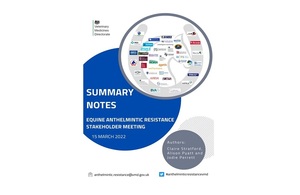- New Procurement Bill will focus on making more government contracts open to small businesses, replacing 350 EU laws with a simple and flexible system
- The Bill was debated in Parliament on Wednesday and is expected to become law next year
- New figures show public sector spending with small businesses rose to a record £19.3 billion in 2021/22
New procurement rules which will level the playing field for SMEs and drive economic growth across the UK have moved a step closer to becoming law this week.
The Procurement Bill, which was debated at Second Reading in the Lords on Wednesday, is expected to become law next year. The Bill will tear up hundreds of complicated and bureaucratic EU rules and replace them with a single, simple and flexible framework for securing public sector contracts.
The reforms will slash costs and make it easier for businesses bidding for contracts, particularly smaller companies with less experience of procurement processes. This will result in more SMEs benefiting from contracts for everything from catering for public buildings to digital services and infrastructure projects.
Chancellor of the Duchy of Lancaster Steve Barclay visited the London offices of Manchester-based SME Informed Solutions on Thursday (26 May) to discuss how the changes will accelerate record levels of government spending with small businesses.
Informed Solutions, often at the forefront of developing new ideas and systems, will benefit from additional flexibility in procurement, with the Bill enabling public sector buyers to test innovative products and prototypes before making a contract decision.
Chancellor of the Duchy of Lancaster, Steve Barclay said:
We are introducing reforms through our Procurement Bill that will do-away with bureaucratic rules that are both complicated and time-consuming for firms to navigate.
Our departure from the European Union means we are free to streamline these rules on who wins taxpayer contracts.
This will give small businesses a better chance of landing public sector contracts and allow the Government wider access to the first-class skills, innovation and ideas that many agile, creative smaller firms offer. In turn this will allow us to improve the services we provide to the public.
Brand new digital infrastructure will make it easier and cheaper for organisations of all sizes to bid for public contracts, with a single digital platform that will hold all of a supplier’s credentials.
Publishing pipelines of procurement opportunities will also allow small companies to make more competitive bids, including forming consortia, while a commitment to prompt payments for a wider range of contracts will level the playing field for SMEs and help reduce the reliance on the same group of large companies.
Liz Crowhurst, CBI Deputy Director for Policy, said:
Businesses are excited to seize the opportunities presented by this once-in-a-generation Procurement Bill.
From the streamlining of complex procurement processes, to the new digital supplier registration system that will slash the administrative burden facing suppliers, the Bill sets out proposals to cut red-tape, promote transparency, and encourage great public-private collaborations.
The new regulations will make working with government easier and more attractive to businesses of all sizes, and industry stands ready to help translate the benefits from paper into practice.
Elizabeth Vega, Group CEO of Informed Solutions said:
Transformational procurement reforms such as these haven’t been enacted in the UK in more than 50 years.
As a scaling business, we are excited and optimistic about how these changes will support the development and growth of our business.
They will make it easier to commercialise our innovative solutions and services, offer greater access and fewer barriers to public sector contracts, and facilitate our international ambitions because we can evidence the benefits, value, and success of our innovation.
The reforms are expected to accelerate government spending with SMEs, which new figures reveal increased for the fourth consecutive year to a record £19.3 billion in 2020/21.
Spending through SMEs grew by £3.7 billion on the previous year, with £10.2 billion of the total spent with SMEs directly and a further £9.1 billion through supply chains.
Notes to editors
- The changes outlined in this Bill will apply to all public sector bodies, including local authorities and central government departments. Read more about the Bill here.
- The new regime will maintain compliance with our international obligations including the World Trade Organisation’s Agreement on Government Procurement, which gives British businesses guaranteed access to £1.3 trillion in public procurement opportunities overseas.
- Data on SME spending can be found here. An SME is generally defined as an organisation with fewer than 250 (FTE) employees and a set limit for annual turnover or balance sheet totals on their company accounts.

